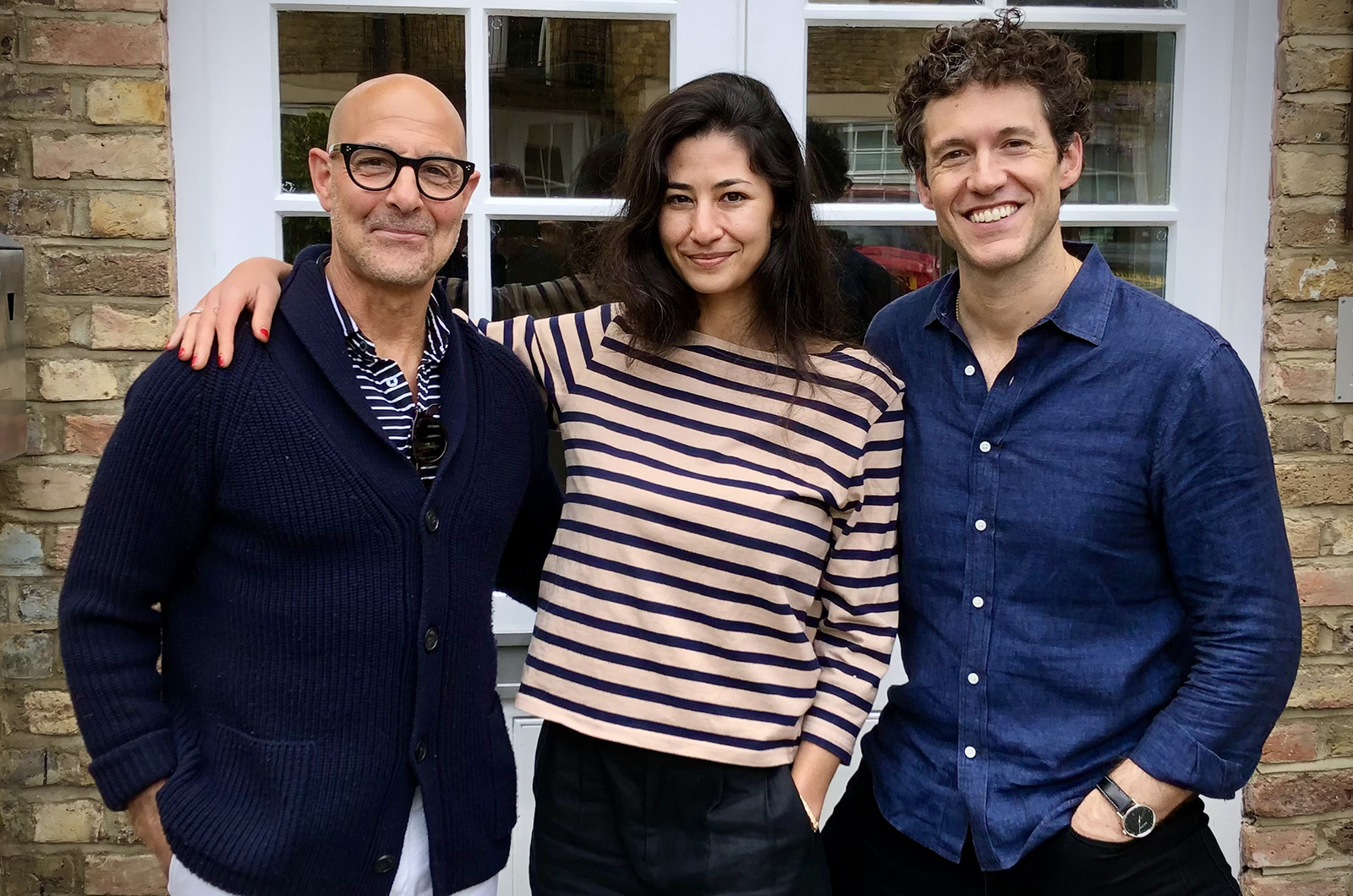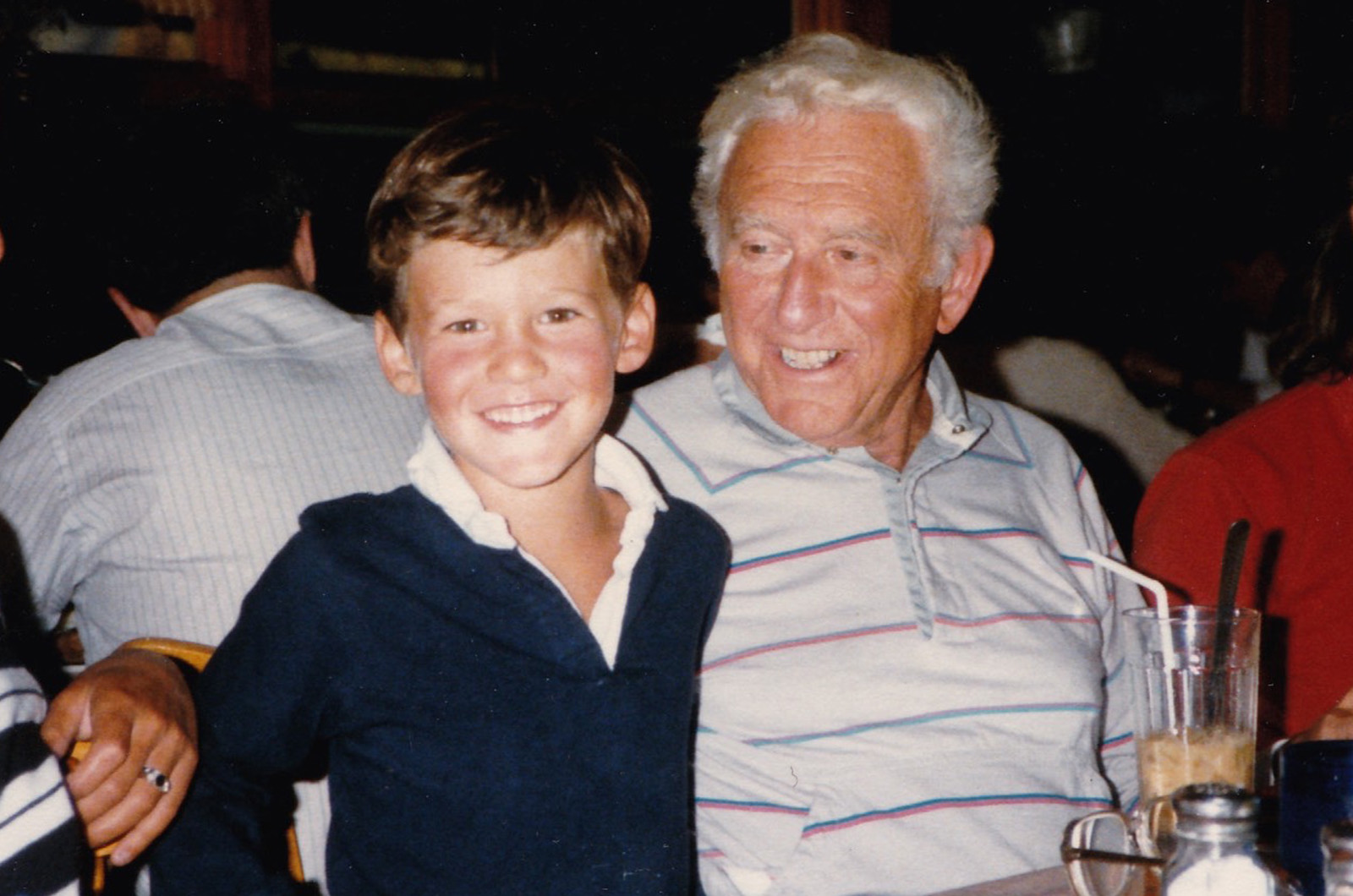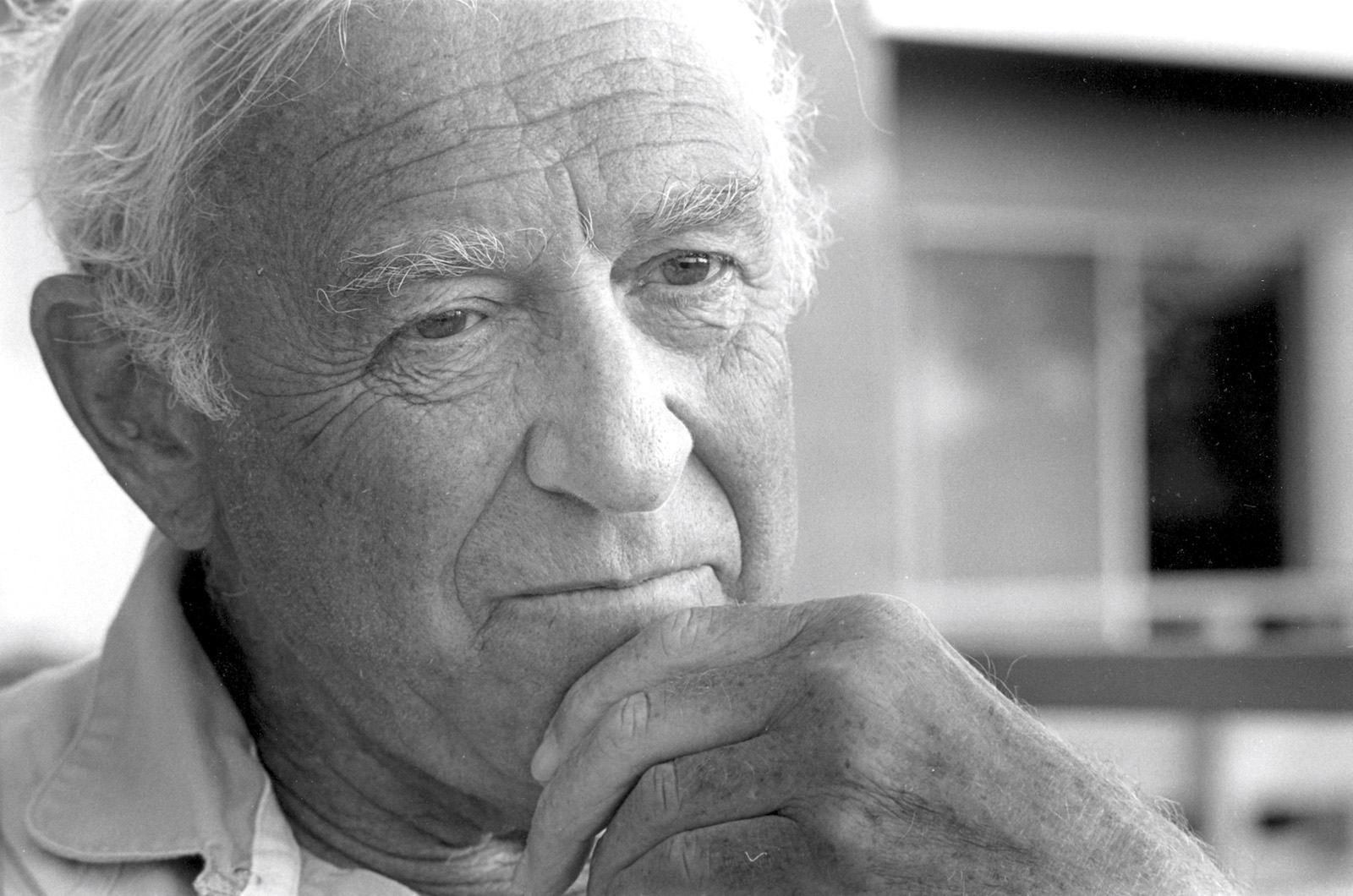Franco and Serena Modigliani first discovered the Vineyard in the 1950s. Franco was a young professor at MIT, and he would spend the next half-century sailing Menemsha Pond while also being awarded the Nobel Prize in economics in 1985. Serena would perfect her blueberry jam and become a vocal participant in local progressive politics.
For the Modiglianis, the Vineyard was a restful stop following a long journey. In a new podcast, Pack One Bag, Franco and Serena’s grandson David Modigliani dives into his family’s escape from fascist Italy and their arrival in wartime America.
David, a documentarian and seasonal Chilmark resident, had heard as a child the legendary stories of his Jewish family’s flight to the United States. During the Covid pandemic, he decided to dust off the boxes of documents that his father Sergio had saved from Franco and Serena’s early romance in Italy.
“During Covid, a lot of people baked banana bread. I reopened the love letters of my grandparents from the moments just before they fled fascist Italy,” David said.
In the 1930s, Franco Modigliani was 19 years old, a student of economics and desperately attempting to court Serena Calabi, a year older and the daughter of Jewish publishing magnate Giulio Calabi.
Their love letters — where David’s podcast begins — preserve not only the traces of young love, but of the rising tide of Italian antisemitism in the late 1930s. The family history quickly grew into an exploration of how men, women, families and citizens confront rising intolerance in the country they call home.
“As I poured through those letters, I was not only struck by their epic romance — 19 and 20 years-old writing between Rome and Bologna — but I was also struck by how relevant their experience of confronting rising fascism was to my present moment,” David said. “The letters didn’t feel like black and white mementos of a time gone by.”
“I grew up in this period where I took two things for granted: strong democracies and a general tolerance of Jews,” David continued.
As David and his then girlfriend and now wife, Willa Kaufman (a producer on the project), dove into the Modigliani family history, their perspectives shifted.
“We were beginning to realize that this period that we had grown up in was perhaps an exception to the rule of world history, [it] was an intermission that could end,” David said.
Franco and Serena had no such intermission, fleeing fascist Italy for France even before they were married. In 1939, they boarded the Normandie as she sailed from France to New York on the eve of World War II, one of the last passenger ships to leave prewar Europe.

The experience of discrimination did not end in the United States. Franco took his PhD at the New School in New York, one of the few universities that did not cap or prohibit Jewish enrollment. A brilliant economist, Franco landed at MIT, where he developed a host of influential economic ideas on how and when people save their income, and how a company’s financial structure might impact their valuation. His contributions to economics won him the Nobel Prize in 1985. Two years later, Franco’s MIT peer and fellow Jewish Chilmarker Robert Solow won the Nobel Prize in economics as well.
As David pieced together the story of his family, he also recovered the narratives of relatives left behind, who had changed their names and hidden in the Italian countryside to survive Nazi occupation.
“I had a simplistic view of how people confront this basic question, should we stay or should we go?” David said.
He came to realize that the reality was much more complicated. Who had the financial reserves to flee or the political connections? Who felt loyalty to a state even as it abandoned them?
Serena’s father Giulio Calabi, the publishing magnate, had once helped smuggle money from France to Benito Mussolini’s pro-war fascist newspaper, Il Popolo d’Italia. The business connection then soured as Giulio Calabi changed his beliefs, turning against Mussolini and becoming a strident anti-fascist. He left his children with a kernel of wisdom that became one of David’s guiding themes for the podcast.
“My bisnonno Giulio, the king of the books, the one who got his family out of Italy, he said: ‘You resist as best you can, for as long as you can. And when you can resist no more, you flee,’” David said. “And I think that is a general takeaway for me as well.”
Pack One Bag, which features Stanley Tucci as the voice of David’s bisnonno Giulio, won an award for best Nonfiction Audio Storytelling at the Tribeca Film Festival.
David credits his wife Willa’s curiosity with driving the podcast. It was the last step on his grandparents’ journey — Chilmark — that brought David and Willa together.
“Willa and I were first connected because our grandparents were friends on Martha’s Vineyard,” David said. “Covid turned us into quaran-teammates, and it was her questions and curiosity about my grandparents’ story that caused me to pull out those love letters.”
To listen to the podcast, visit: packonebagshow.com.









Comments (3)
Comments
Comment policy »